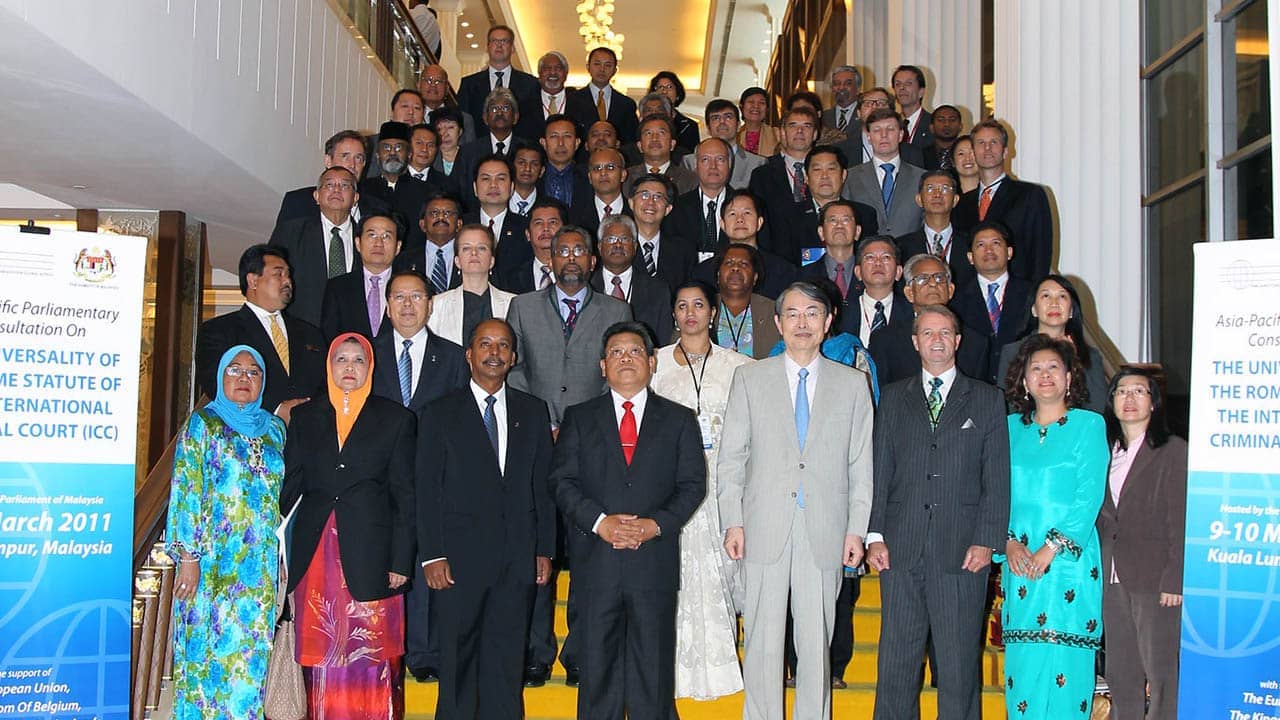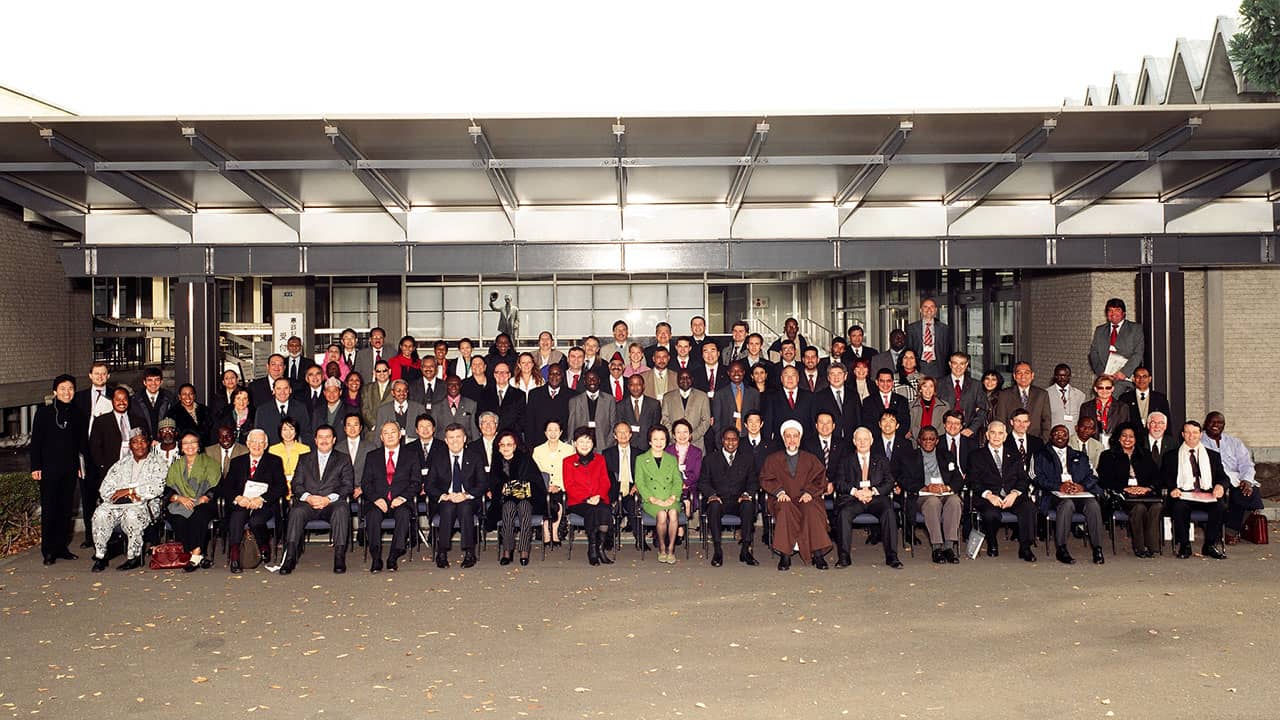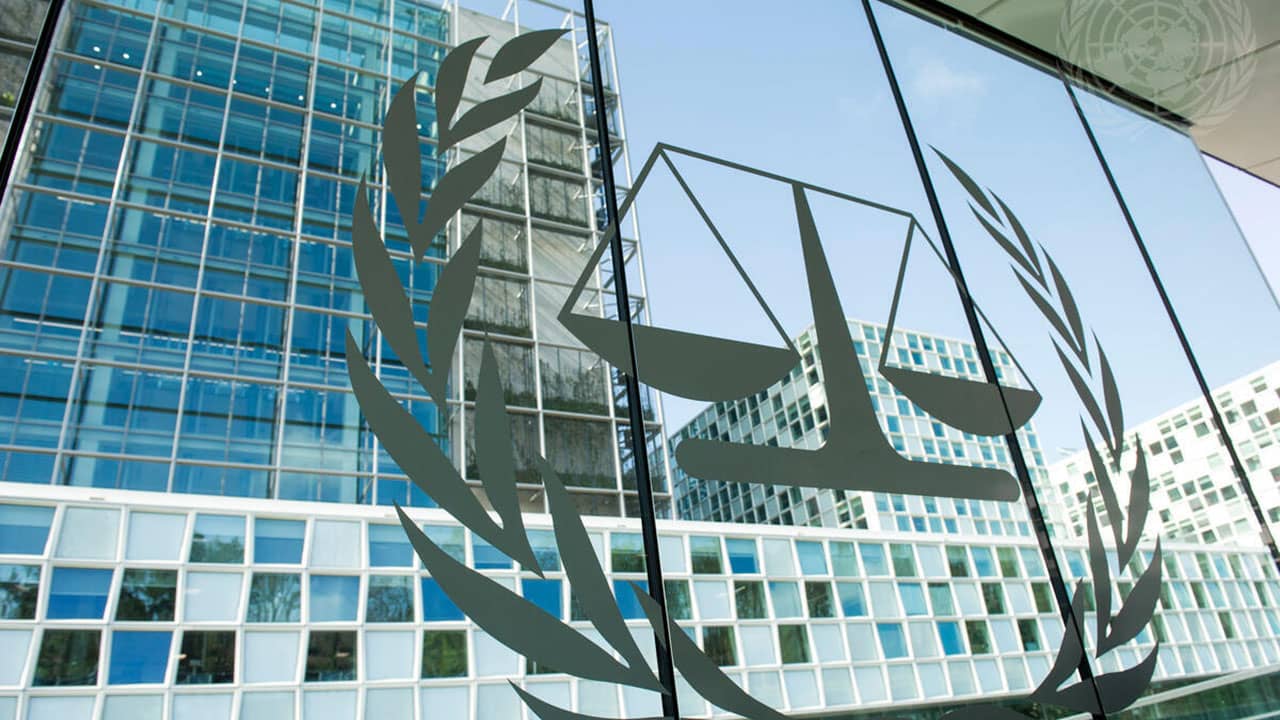A constitutional reform process is currently underway in Nepal. Nepal is showing encouraging signs toward the ratification of the Rome Statute. The Nepali government will further address this process after the introduction of the new Constitution, allowing the country to address the legal scheme of international criminal justice.
PGA has been working with Nepal for over more than ten years and continues to do so since Nepal is a target country of the Campaign for the Rome Statute of the ICC.
Rome Statute
Nepal has not signed the Rome Statute but actively participated in the 1998 Rome Conference that adopted the Rome Statute with 120 votes in favor.
Kampala Amendments of 2010
Nepal has not ratified the Kampala Amendments.
Status on the domestic implementation of the Rome Statute
Nepal has not enacted implementing legislation on the Rome Statute.
In April 2014, Nepal’s Constituent Assembly passed a Truth and Reconciliation Act (TRC Act). The Act establishing the Commission on Investigation of Disappeared Persons, Truth and Reconciliation authorizes it to recommend amnesties for mass violations, including crimes under international criminal law. The TRC Act therefore violates principles of international law under which there should be no Amnesty for international crimes and would need to be amended to be in line with international standards and the ruling of Nepal’s Supreme Court.
Agreement on Privileges and Immunities of the Court (APIC)
Nepal has not signed the APIC.
Progress and PGA Action
In December 2014 a Delegation of Nepali MPs participated in the 8th Consultative Assembly of Parliamentarians for the ICC and the Rule of Law (CAP ICC) in Morocco. In this context and in the framework of the CAP ICC, PGA organised a meeting between the Nepali delegation and Judge Sang-Hyun Song, the President of the ICC, where they were able to discuss the best way for Nepal to move toward a ratification of the Rome Statute.
In September, 2011 PGA organized the Visit of a Delegation of 3 Members of the Constituent Assembly of Nepal to the ICC in The Hague. The Delegation, comprising of Mr. Khimlal Devkota MP, Mr. Ramesh Lekhak MP and Mr. Pradeep Gyawali MP met separately with a number of high-level representatives including the President of the ICC, Judge Sang-Hyun Song, senior officials from the Office of the Prosecutor of the ICC as well as with Ms. Silvana Arbia, the Registrar of the ICC. The Delegation was accompanied by the President ad Interim of PGA, Dr. Ruth Wijdenbosch MP (Suriname) and senior PGA Staff.
In March 2011, a delegation of Nepali MPs actively participated at the Second PGA Asia-Pacific Parliamentary Consultation on the Universality of the Rome Statute of the International Criminal Court., hosted by the Parliament of Malaysia, which established the Kuala-Lumpur Action Plan to Promote the Universality of the Rome Statute of the ICC in the Asia-Pacific. This document suggests country-specific actions for several countries including Nepal. Following on from the First PGA Asian Consultation on the ICC held in the House of Representatives in The Philippines four years ago, the purpose of this second Consultation was to review current ratification and implementation processes of the Rome Statute in a number of countries in the region with a view to identifying the most effective means to moving these respective processes forward.
On December 2, 2009, the PGA International Secretariat, in association with the PGA National Group Nepal, organized the Second PGA Roundtable Meeting on the ICC in Kathmandu, Nepal, in order to create a greater sense of importance surrounding the desirability for Nepal to accede to the Rome Statute of the ICC, thereby affirming its commitment to the rule of law and to promote greater understanding and awareness on the ICC among Nepalese Legislators. Judge Sang Hyun Song, President of the Court, explained the main features of the Court’s jurisdiction, focusing in particular on its 'complementarity' role and its non-retroactive status, as enshrined in the Rome Statute. The participants in this Roundtable Meeting on the ICC included, among others, MPs from a range of different political parties in Nepal, a representative from the Nepal National Human Rights Commission, as well as the Representative of the United Nations High Commissioner for Human Rights in Nepal.
On 11 February 2009, the Minister of Foreign Affairs tabled an agenda item for accession to the Rome Statute for the Cabinet. The Cabinet decided that this matter would be discussed only at a later stage.
On 28 September 2007, PGA organized the First PGA Round Table Discussion in the Parliament of Nepal on the Accession and Implementation of the Rome Statute of the International Criminal Court (ICC), hosted by the Speaker of the Parliament of Nepal. The Round Table saw the active participation of 16 MPs from all major political parties of Nepal. The Round Table allowed for reaching a consensus in support of the prompt accession of Nepal to the Rome Statute of the ICC.
The Round-Table Discussion was preceded by separate meetings of the PGA staff with Nepali high officials and a joint mission, organized by Amnesty International (AI) and the CICC, to brief Members of the Nepali Government and political parties on the importance of the ICC for Nepal. PGA bilaterally met with the ex-Minister Mr. Govinda Raj Joshi (NCP) MP, and later with Mrs. Sujata Koirala (NCP) MP. PGA, AI and CICC were received by the Maoist Spokesperson and former information and communication Minister, Mr. Krishna Bahadur Mahara. In a groundbreaking meeting with top officers from the Ministry of Foreign Affairs of Nepal, the Under-Secretary and the Joint Secretary for UN and Legal Affairs told PGA, AI and the CICC delegation that the Government had finalised a cabinet memo on ratification that had been submitted earlier in 2007 to the Office of the Prime Minister for Cabinet determination.
PGA Members from Nepal from most political parties have been supportive of the ICC since 2002, when PGA Members Pashupati Rana, MP and Chakra Prasad Bastola, MP (both former Foreign Ministers) joined a PGA consultation on the ICC in South Asia held in Delhi, India. In July 2006, PGA Member Mr. Gurung, MP, submitted a pro-ICC resolution to Parliament. The Nepalese Parliament therefore unanimously issued a "commitment resolution" (Sankala) directing the government to ratify the Rome Statute. This resolution marked a very important step of parliamentary requirements toward ratification.
Human Rights Council Universal Periodic Review:
Nepal will be reviewed during the 23rd session of the UPR in 2015 (second cycle).
Nepal rejected the recommendations made in the first UPR review cycle of Chile and Japan to ratify international rights treaties such as the Rome Statute without explanation in the national report. It did not provide comment to the German recommendation to ratify the Rome Statute, again.









